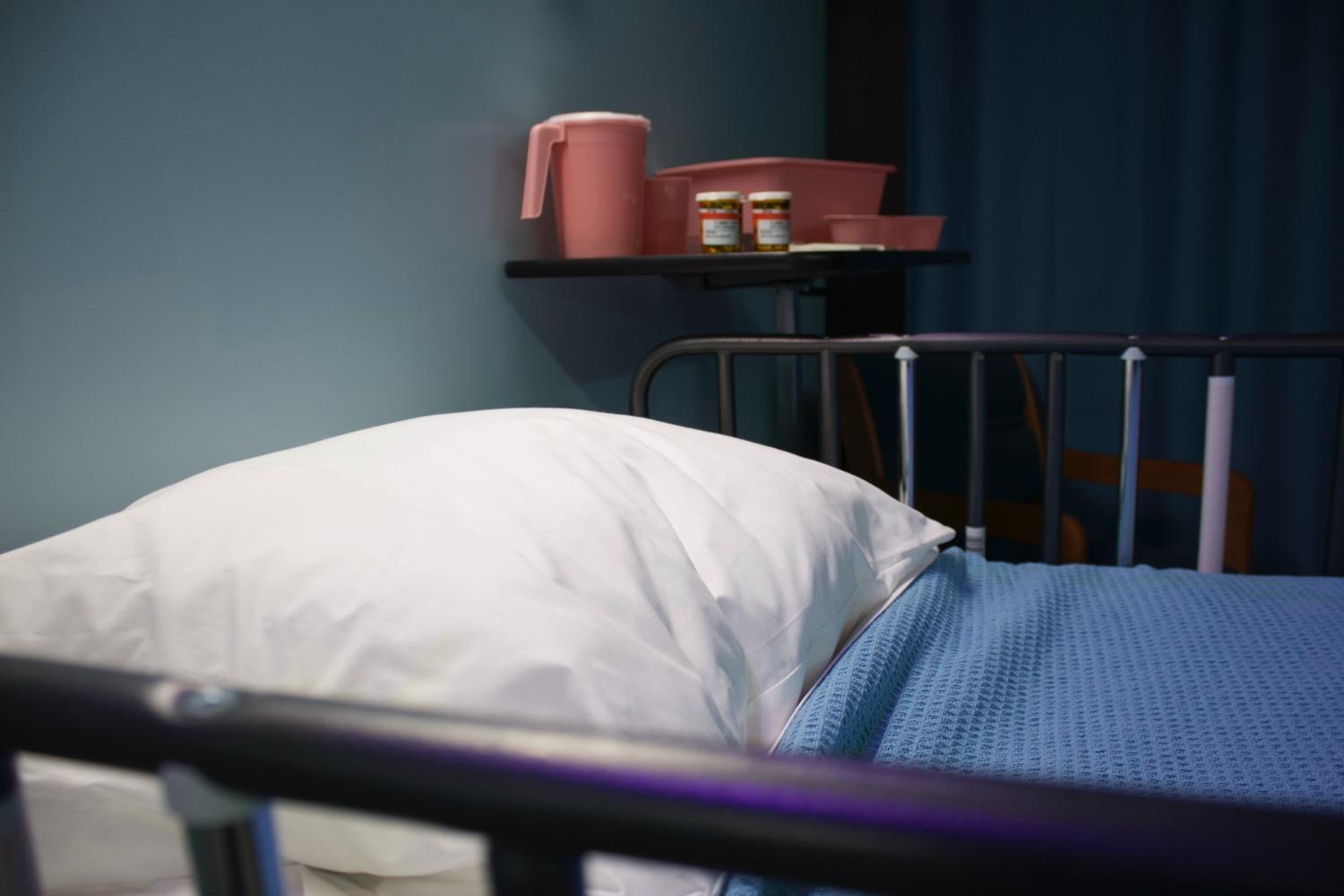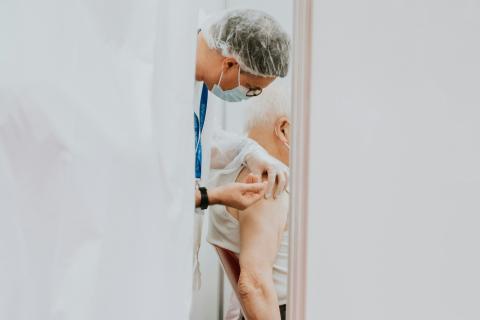
This article was originally published by Our Sunday Visitor. ‘Mostly dead’ is ‘still alive’: Uniform Declaration of Death Act may soon disagree,” by Charlie Camosy. © OSV News. March 15, 2023. Used by permission, no other use of this material is authorized. www.osv.com
As an observing member of the Drafting Committee to Revise the Uniform Declaration of Death Act (UDDA) Dr. Christopher DeCock — talking with Charlie Camosy on behalf of OSV News — discusses an upcoming (and highly problematic) possible revision to the UDDA, one that could subjectivize the all-important issue of when a human being is truly dead.
Dr. DeCock is a board-certified pediatric neurologist and epileptologist who practices at Essentia Health in Fargo, North Dakota. He also is the physician chair of the hospital's ethics committee and the pediatric clerkship director for the University of North Dakota School of Medicine and Health Sciences.
Charlie Camosy (CC): What's the church's current teaching on brain death? What does it mean that some moral theologians and philosophers who are not routine dissenters have new questions about brain death?
Dr. Christopher DeCock: Generally, the notion of brain death is supported by the church. Popes Pius XII, John Paul II and Benedict XVI have all discussed this issue. However, there are caveats. Conclusions should be based on whole-brain death; we need moral certitude in our medical determination; and third, we need to only remove vital organs from patients who are dead.
There are patients diagnosed with "chronic brain death," who — though meeting the current clinical criteria for brain death — are seemingly alive. Perhaps the most famous example is Jahi McMath, who lived for four years after her diagnosis. This is because the current clinical criteria do not test for a vital part of the brain, the hypothalamus, which continues to function and explains why Jahi went through puberty and why some "chronic brain dead" patients can gestate pregnancies. Her whole brain was not dead.
CC: The new uncertainty about brain death is not only in the church. Muslims and Jews have questions. Secular folks have questions. Can you briefly map out this uncertainty?
DeCock: Uncertainty about brain death can be divided into three categories. First: Some do not feel the medical data fits the practice. Secondly, some are religiously concerned and (here I greatly oversimplify their views), they believe that death cannot be related to the brain, but only cardiopulmonary death. The third category is an objection due to a formed conscience which, for one reason or another, has encountered a problem with "brain death." All of these perspectives are valid and need to be respected.
Personally, I believe that there is such a thing as brain death and that the brain is the master-integrator of the body. It is clear to me that the current clinical criteria do not test for "whole-brain death" and because of this, some "chronic brain dead" diagnoses are mistaken. If the clinical criteria did test for whole-brain death, I believe some "chronic brain dead" patients would be considered alive, since they still have hypothalamic function. Therefore, due to inadequate criteria, we currently do not have moral certitude that the diagnosis of brain death is accurate. We must not harvest vital organs from "chronic brain dead" patients because they might well be alive. This agrees with what Pius XII, John Paul II and Benedict XVI all taught.
CC: Into this uncertainty jumps something called the Uniform Law Commission Drafting Committee on Revising the Uniform Determination of Death Act (UDDA). You have been an in-person observer for this committee. What concerns do you have about what this committee may do?
DeCock: First off, it is important to understand what the original UDDA says with regard to brain death. It says that you are legally dead ONLY if your whole brain is dead. With the revision, there are two proposals being presented to the committee at large this summer. The first does not change this definition of death, but the second does. This second proposal changes the definition from whole-brain death to only partial-brain death. That worries me. The rationale behind this second proposal is to bring the law in line with the current inadequate clinical criteria for determining brain death. Again, they are inadequate since they do not test for hypothalamic function and that function is what is present in "chronic brain dead" patients.
There is significance to changing the definition of death. Right now, the definition of brain death is a biological one rooted in objective reality. This second proposal is subjective — as if to say, "your brain is dead enough so we will decide that you are dead." Death is not something we can decide based on a committee; death is a biological truth. "Mostly dead" will never be dead enough.
CC: This is disturbing. Can you game out the medium and longer-term implications if we head in this direction? How can Catholics move to prevent it?
DeCock: It is disturbing. In "The Princess Bride," Miracle Max famously said, "Mostly dead is slightly alive." The patients relevant to the second proposal may be considered "slightly alive," but to take their organs will make them "all dead." Allowing someone to die is hugely different from actively causing their death. In the first case, the natural course of events can occur, and this is morally licit. In the latter, killing someone by removing their vital organs is homicide, and illicit.
If we know that "chronic brain dead" patients are "slightly alive" and yet still harvest their organs, we are no better than groups committing genocide. We would be creating a subclass of living people we call "dead" who we are objectifying and using in a utilitarian manner. Once you change death from an objective reality to a subjective one, it is easy to move the goalposts again and again. Why not make "consciousness" the new goalpost? Or, if they are in a persistent vegetative state, why not call them "dead" and harvest their organs? How about those who get euthanized? When their heart stops, we could restart it, clamp off the blood vessels to the brain to cause "chronic brain death" and harvest their organs.
There is a concept called "whole body gestational donation," that some who support this second proposal think is licit. Basically, since "chronic brain dead" women can gestate pregnancies, you impregnate them via IVF to support someone else's pregnancy. Basically, this would be like using Jahi as an incubator and then, when she is no longer useful for this, kill her by removing her vital organs. We could see commodification of "chronic brain-dead" young women from future euthanasia cases, meant to generate materials for the surrogacy, IVF, and organ harvest industries. Sorry to be so negative, but this can get really dark, really fast.
As to what Catholics can do — we need to raise hell and stop this second proposal from being accepted by the committee in July. We need to hold medicine accountable for practicing bad medicine and allowing these extremely vulnerable patients to be murdered for their organs. In addition, we need to talk with our local commissioners serving on the Uniform Law Commission and let them know that they cannot change the definition of brain death. To quote Edmund Burke, "Evil is allowed to triumph when good men do nothing."


